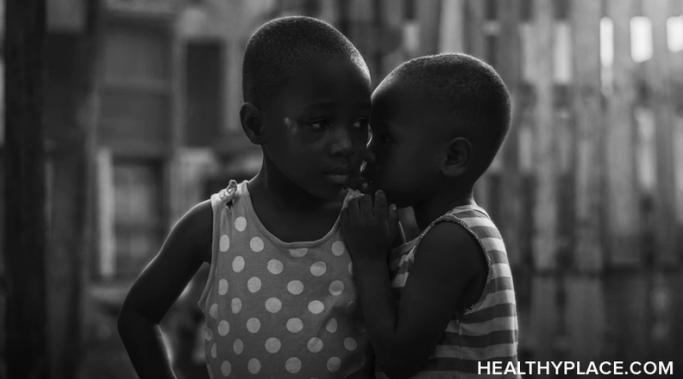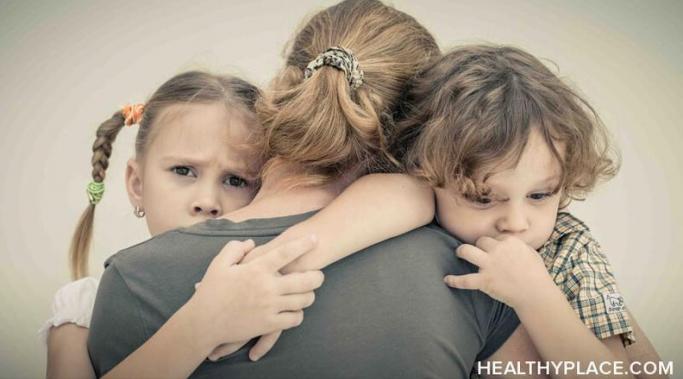"But he doesn't look sick," my daughter said. She was right. On the outside, Bob looked like any other middle school child. What his sister and the rest of the world didn't know was that Bob had been diagnosed with a serious mental illness. His psychiatrist suggested we keep Bob home from school and wrote a note stating Bob was a threat to himself and others. Now I had to explain this to Bob, his sister and the rest of the world.
Family and Mentally Ill Children
Life with Bob and His father has not been easy. I've been writing about parenting a child with mental illness (ADHD in Bob's case). I've not written much about my relationship with Bob's father. It is a difficult and challenging one. Almost, if not more challenging than my relationship with Bob.
In my last post I shared three tips for having tough conversations with loved ones about your child’s mental illness. If you haven’t had a chance to read them, check them out. Here are my final three tips on how to advocate for your child and get support from others. Tough conversations are hard, but with these tips, people can come around.
Hiya readers! Mental illness advocacy is important and can take place even in the context of your own family. I recently shared some of my challenges in giving my father the talk about Bob's ADHD diagnosis. It wasn't easy. For a few reasons - the biggest one being that I was afraid of how my father would react. For someone like me who wasn't allowed the freedom to feel all of my feelings (including anger) towards my father, I grew up thinking that I couldn't ever be upset because it was SO scary for me. So you can imagine advocating for my son's mental illness didn't come easy to me.
I grew up thinking that my heart was going to jump out of my chest anytime I thought about asserting myself much less confronting someone. Before having my child, I didn't. I was more passive in showing my feelings. They existed, but in a roundabout way.
Hiya readers! In a previous post, I shared some ADHD Trivia about Bob's diagnosis and treatment. Today, I wanted to share how challenging it was to co-parent Bob with his father who was in even MORE denial than I was about Bob's diagnosis.
The story of Salecia Johnson--a 6-year-old Kindergarten student who was handcuffed and arrested following a destructive tantrum--received widespread media attention. That this unfortunate event occurred at all is bad enough--the public's response has been even worse.
The quest for a GOP presidential candidate has raised a lot of brouhaha concerning reproductive rights in America. Whether certain politicians aim to force everyone to spawn or limit childbearing rights to a particular set is unclear. The debate, however, brings to mind the question: should people with mental illness have children?
I've been shopping for a new psychiatrist for my chronic severe depression and anxiety, and I think I've found a good one. Female, office nearby, personable, good reputation, and covered by my insurance.
There's just one possible snag--she's already seeing my son.
Before I decided to share them here, I hadn't read my old personal blog entries chronicling Bob's two inpatient hospitalizations in 2008 since writing them. As I read them four years later, the confusion, hurt, anger and hopelessness are just as palpable.
Amazing how the past can provide perspective into the present.
If you read my previous post detailing Bob's first inpatient admission to a psychiatric facility, you know I felt horrible about the decision, but hopeful Bob would get help. I also thought the hospital staff would see me as a concerned mother who wanted the best for her son. I had no idea what was actually in store for me and my husband.








